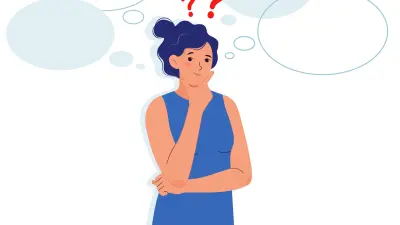You’ve probably joked, “I’ll sleep when the kids are older.” But here’s the truth: sleep can’t wait. In an episode of The Science of Success podcast, Dr. Matthew Walker—neuroscientist, author of Why We Sleep, and director of UC Berkeley’s Center for Human Sleep Science—calls sleep “the Swiss Army knife of health.” When you don’t get enough, everything suffers—from your memory and mood to your immune system and even your parenting patience.
1. Sleep Deprivation Is a Health Crisis
Dr. Walker calls it “a slow form of self-euthanasia.” Ouch. Most adults today sleep just 6.3 hours a night—down from 7.9 hours in the 1940s. That drop is linked to almost every disease that shortens our lives: Alzheimer’s, cancer, heart disease, stroke, diabetes, and depression.
2. You’re Not Just Tired—You’re Impaired
After 20 hours awake, your brain works as if you’re legally drunk. So if you’ve ever driven your kids or made big decisions while sleep-deprived, that’s a big deal.
3. Poor Sleep Messes With Your Mood
Sleep reconnects your emotional gas pedal (amygdala) with the brakes (prefrontal cortex). Without enough sleep, you’re all gas and no brake—hello, mom rage and tears over spilled milk.
4. Less Sleep = Less Creativity and Patience
Underslept people take fewer risks, solve fewer creative problems, and slack off in groups. They also produce fewer innovative ideas and exert less effort—all things moms need in spades.
5. Sleep Affects Your Parenting Hormones
Lack of sleep messes with your hunger hormones—dropping leptin (fullness) and increasing ghrelin (hunger). That means you’re hungrier and more likely to grab the cookies over the carrots.
6. You Can’t Make Up for Lost Sleep
Nope, you can’t “catch up” on weekends. Naps don’t fully restore cognitive function either. Sleep debt is real, and it builds up fast.
7. Your Immune System Crashes Without Sleep
One night of four hours of sleep can tank your immune response by 70%. Sleep-deprived moms are 300% more likely to catch a cold. Yikes.
8. Most Sleep Meds Don’t Actually Work
Sedatives (including alcohol) knock you out—but don’t give you the restorative REM and deep sleep your body needs. Cognitive Behavioral Therapy for Insomnia (CBTI) works better, without the side effects.
9. Melatonin Is Misunderstood
Melatonin isn’t a sleep drug—it’s a “start signal.” It’s helpful for jet lag, but not great for everyday sleep unless you’re out of rhythm. The real key? Creating the conditions your body needs to fall asleep naturally.
10. 5 Ways to Start Sleeping Better Tonight
Dr. Walker’s top sleep tips are surprisingly doable—even for tired moms:
- Stick to a schedule. Same bedtime and wake time—even weekends.
- ❄️ Keep it cool. Set your bedroom to 68°F (18.5°C).
- Dim the lights. Avoid screens and bright lights an hour before bed.
- ️ Get out of bed if you can’t sleep. Don’t lie there awake—reset.
- ☕ No caffeine after noon. And ditch the nightcap—it ruins REM sleep.
Ready to Feel Like You Again?
Try this one-week challenge: Commit to 8 hours of sleep for 7 days. Then ask yourself: Do I feel better? Am I more patient? Do I remember things more clearly?
Chances are, the answer will be a resounding yes.
Remember: prioritizing sleep isn’t lazy—it’s one of the most loving things you can do for your kids, your partner, and yourself.
Sources & References
- Why We Sleep: Unlocking the Power of Sleep and Dreams by Dr. Matthew Walker
- The Science of Success podcast episode: “The Sleep Deprivation Epidemic”
More on TodaysMama.com!
7 Science-Backed Tips for Better Sleep
7 Ways Your Brain Turns Into a Therapist When You Sleep








Leave a Reply